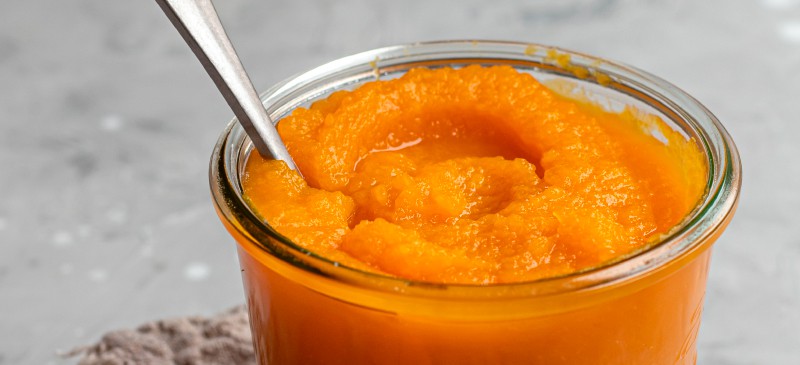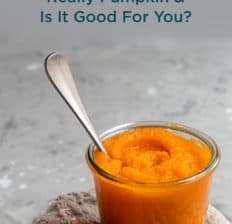This Dr. Axe content is medically reviewed or fact checked to ensure factually accurate information.
With strict editorial sourcing guidelines, we only link to academic research institutions, reputable media sites and, when research is available, medically peer-reviewed studies. Note that the numbers in parentheses (1, 2, etc.) are clickable links to these studies.
The information in our articles is NOT intended to replace a one-on-one relationship with a qualified health care professional and is not intended as medical advice.
This article is based on scientific evidence, written by experts and fact checked by our trained editorial staff. Note that the numbers in parentheses (1, 2, etc.) are clickable links to medically peer-reviewed studies.
Our team includes licensed nutritionists and dietitians, certified health education specialists, as well as certified strength and conditioning specialists, personal trainers and corrective exercise specialists. Our team aims to be not only thorough with its research, but also objective and unbiased.
The information in our articles is NOT intended to replace a one-on-one relationship with a qualified health care professional and is not intended as medical advice.
Canned Pumpkin: Is It Really Pumpkin & Is It Good for You?
September 4, 2024

There’s good reason that canned pumpkin is considered by many to be a fall baking essential. It’s tasty, super convenient and versatile — plus chock-full of nutrients, including vitamin A and fiber.
Pumpkin puree is not the same as canned “pumpkin pie filling,” which is typically sweetened and made with spices like cinnamon, clove, allspice and ginger.
What can you do with pumpkin puree? As explained more below, you can use it in canned pumpkin recipes, including pumpkin breads, pies, soups and even lattes.
What Is Canned Pumpkin?
Is canned pumpkin puree really pumpkin? While it depends on the specific brand, most of the time, yes.
Some brands add sugar, preservatives and spices to their products, while others are 100% pure pumpkin.
Is pumpkin puree the same as canned pumpkin? Yes, both are cooked, pureed pumpkin.
Only the “flesh” of the pumpkin is used to make puree, while the hard outside shell and pumpkin seeds are discarded. (If you choose to carve and cook your own pumpkin, definitely put the seeds to use, since they are packed with nutrients like magnesium, phosphorus, potassium, iron, zinc and copper.)
Nutrition Facts
You probably already know how tasty pumpkin treats like breads and muffins can be, but what may surprise you is how impressive canned pumpkin nutrition also is.
100% pure pumpkin puree is a great source of:
- Vitamin A/beta-carotene
- Fiber
- Vitamin C
- Potassium
- Manganese
- Iron
- Copper
- Antioxidants
A one-cup serving of canned pumpkin (approximately 245 grams) contains about:
- Calories: 83.3
- Total Carbohydrates: 19.8 g
- Fiber: 7.1 g
- Sugar: 8.1 g
- Total Fat: 0.7 g
- Saturated Fat: 0.4 g
- Polyunsaturated Fat: 0.04 g
- Monounsaturated Fat: 0.1 g
- Trans Fat: 0 g
- Protein: 2.7 g
- Sodium: 12.2 mg (0.5% DV*)
- Vitamin A: 1,910 mcg (212% DV)
- Vitamin K: 39.2 mcg (33% DV)
- Copper: 0.3 mg (33% DV)
- Pantothenic Acid: 1 mg (20% DV)
- Iron: 3.4 mg (19% DV)
- Manganese: 0.4 mg (17% DV)
- Vitamin E: 2.6 mg (17% DV)
- Magnesium: 56.4 mg (13% DV)
- Vitamin C: 10.3 mg (11% DV)
- Potassium: 505 mg (11% DV)
- Riboflavin: 0.1 mg (8% DV)
- Phosphorus: 85.8 mg (7% DV)
- Folate: 29.4 mcg (7% DV)
- Vitamin B6: 0.1 mg (6% DV)
- Calcium: 63.7 mg (5% DV)
*Daily Value: Percentages are based on a diet of 2,000 calories a day.
Related: How to Carve a Turkey: Step-by-Step Guide (Plus Recipes!)
Benefits/Uses
1. Very high in vitamin A
Pumpkin is an excellent source of beta-carotene, a precursor to the active form of vitamin A that has antioxidant properties. Just a half-cup serving provides far more than your daily needs of vitamin A.
Vitamin A helps support healthy eyes and vision and also fights free radical damage that can harm and age the skin.
Coupled with beta-carotene, two antioxidants found in pumpkin called lutein and zeaxanthin can also help prevent cataracts and promote healthy vision into older age.
2. Good source of vitamins C and K
In addition to supplying vitamin A, you’ll find other vitamins within pumpkin that act like antioxidants, including vitamins C and K.
Vitamin C helps protect cells and tissues from damage, repairs skin cells, and supports a healthy immune system.
Together with vitamin A, vitamin C can help protect against formation of fine lines and wrinkles due to sun exposure, while also promoting collagen synthesis.
Diets rich in vitamin K are linked to a reduced risk for bone-related issues and heart disease. Vitamin K also seems to help prevent damage from free radicals and may decrease the risk of certain types of cancers.
3. High in fiber
Like other winter squashes, pumpkin is full of dietary fiber, which helps make you feel full, supports digestive health, fights constipation and helps stabilize blood sugar levels.
If you’re trying to manage your weight, pureed pumpkin may also help you cut back on sugar and added fat in recipes, such as by replacing cheese, cream or oil. It’s a low-calorie food with a high water content, but it can still help to fill you up.
4. Supplies heart-healthy potassium
Canned pumpkin is full of electrolytes and minerals that support a healthy cardiovascular and immune system, including potassium, magnesium and iron.
Potassium-rich foods and those containing magnesium help normalize blood pressure levels and support heart health, while iron is needed to provide oxygen to red blood cells.
Additionally, you’ll find plenty of manganese within pumpkin, which defends against loss of bone density and fractures, while also providing anti-inflammatory benefits that promote cognitive, metabolic and joint health. Manganese also helps the body utilize iron, which can help keep levels within a normal range and prevent anemia (low iron).
5. Can provide nutrients for pets
Can you give canned pumpkin to pets? Yes, this is a great way to add fiber and antioxidants to your pet’s meal.
What type of canned pumpkin is good for dogs? Only give your dog plain canned pumpkin that is unsweetened, since too much sugar can upset your canine’s stomach.
How to Use (Recipes)
Sometimes you might have trouble finding canned pumpkin puree because it’s become a popular item for autumn baking and holiday prep.
Where can you find canned pumpkin? Look for it in major supermarket chains, health food stores or online in bulk.
Libby’s is one of the most popular brands (and is 100% pure pumpkin puree), which most supermarkets stock, especially in the fall around Halloween and Thanksgiving. Some large retailers such as Trader Joe’s, Thrive Market, Whole Foods and Walmart also make their own versions of canned pumpkin.
Can you eat canned pumpkin without cooking it? Yes, because it’s already cooked.
However, combining it with spices and other ingredients will make it taste even better.
When baking with pumpkin puree, try using a brand that is silky and creamy with a naturally sweet taste. Make sure it is not too gritty or pulpy — or sweetened with extra sugar.
You’ll also want to look for a deep orange color rather than brown.
Try using canned pumpkin puree in some of the following healthy pumpkin recipes:
Risks and Side Effects
Like other canned goods, some canned pumpkin products are high in sodium. You’ll also want to read ingredient labels carefully to avoid those with added sugar.
Conclusion
- Canned pumpkin puree is cooked pumpkin, minus the shell and seeds. It has a smooth texture and a slightly sweet taste, even without any added sugar.
- Benefits include supplying you with vitamins A, C and K; fiber; potassium; manganese; and more. These help support healthy eyes/vision, skin, a strong immune system, and cardiovascular, digestive and skeletal health.
- Is canned pumpkin healthy for dogs? Yes, this a great source of nutrients for dogs and is unlikely to cause allergies.
- In terms of where where to buy canned pumpkin, look at places including major grocery stores, Trader Joe’s, Walmart and Whole Foods.
- Use pumpkin puree in recipes including soups, pies, marmalades, muffins, breads and lattes.










